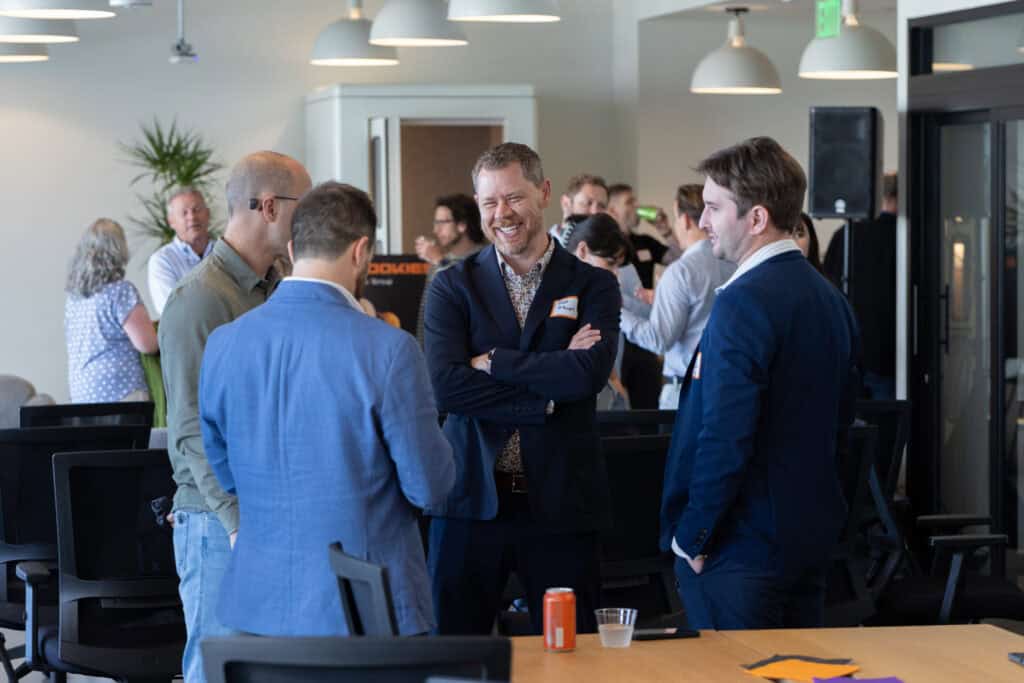What happens when AI stops being a novelty, and starts shaping how teams actually work?
That’s the question we unpacked at our latest Smart Cookies event, where a room full of leaders gathered to explore how AI moves from curiosity to capability, and eventually, from sidekick to system.
Our evening was hosted by Bryon Scharenberg (Kalles Group), and our panel featured:
- Eli Coon, Principal Product Manager at Microsoft Copilot Studio
- Zach Koch, Co-founder & CEO at Ultravox
- Mike Anderson, Co-founder of AILayer (and Sou.ls) + Executive Director at the Independent AI Institute
What followed was a practical, sometimes provocative, conversation on what AI is doing today and what it might become next.
This isn’t about if AI belongs in your org. It’s about where and how.
As Bryon shared during the event, “You don’t need to be an AI expert to lead through this moment. But you do need to be engaged, curious, and willing to start building muscle now.”
Let’s be clear: the “should we use AI?” moment is behind us. If you’re still on the fence, start writing your exit plan. The real question is this: Where do you need to move faster, reduce friction, and free up humans for the work that matters? And how can AI help you do it intentionally and responsibly?
We’re sharing 5 takeaways from the conversation:
1. Stop tinkering. Start operationalizing.
AI isn’t magic, but it is useful when embedded into the way teams work. And most orgs are still in the tinkering stage.
“AI is successful when users don’t even realize they’re using it, because it’s embedded in their natural workflow.”
— Eli Coon, Microsoft
That transition, from individual play to team-wide utility, takes intentional design. It’s not just about deploying tools. It’s about creating the conditions for them to work.
2. Tools don’t transform teams. Teams transform teams.
Even the most powerful AI platform won’t shift how your org works if no one’s ready to use it.
“You can give people a powerful tool, but unless it fits into how they already work, they won’t use it.”
— Zach Koch, Ultravox
Leaders need to model experimentation. Teams need systems that support learning. And orgs need to align incentives around real adoption—not just access.
3. Trust starts with transparency and tuning.
Before AI earns a seat at the table, it has to earn trust, and that takes visibility, not just velocity.
“You build trust in AI the same way you build trust with people—through consistency, transparency, and feedback loops.”
— Mike Anderson, AILayer
If the AI is giving suggestions or making decisions, users need to understand why. That’s how you prevent misuse and accelerate maturity.
4. Speed isn’t the goal. Smart scaling is.
In the race to deploy AI, too many orgs are skipping steps. But friction isn’t always bad; it can be a signal.
“We need to preserve friction in the right places. Not everything should be fast. Some things should be thoughtful.”
— Zach Koch
“As a PM, I have a rule: I never automate empathy.”
— Eli Coon
There are real limitations, technical gaps, and human moments that need to stay human. Leaders who scale with guardrails will win long term.
5. The future is coming—and it won’t look like the past.
Mike challenged the room to zoom out: what if the future of organizations isn’t just AI-enhanced… but AI-native?
“It’s entirely possible in the future that a single person with a team of agents could rival the output of a Fortune 500 company.”
— Mike Anderson
It’s not about replacing people. It’s about reshaping what’s possible, with AI as a force-multiplier, not a threat.
Final thought: Everyone is a learner right now.
No one has this perfectly figured out. But the teams who start now- building, testing, learning- are the ones who’ll be ready when it counts.
This is a leadership moment. It’s not about hype. It’s about habit.
Start small. Stay curious. Build the muscle.
Thanks to our speakers:
- Eli Coon – Microsoft Copilot Studio
- Zach Koch – Ultravox
- Mike Anderson – AILayer & Independent AI Institute
And to our sponsors:
- Kalles Group (Title Sponsor)
- Industrious Workspace
- Treat Cookies
Next Smart Cookies: September 10, 2024
Sign up to be the first to hear about the topic: kallesgroup.com/smartcookies

